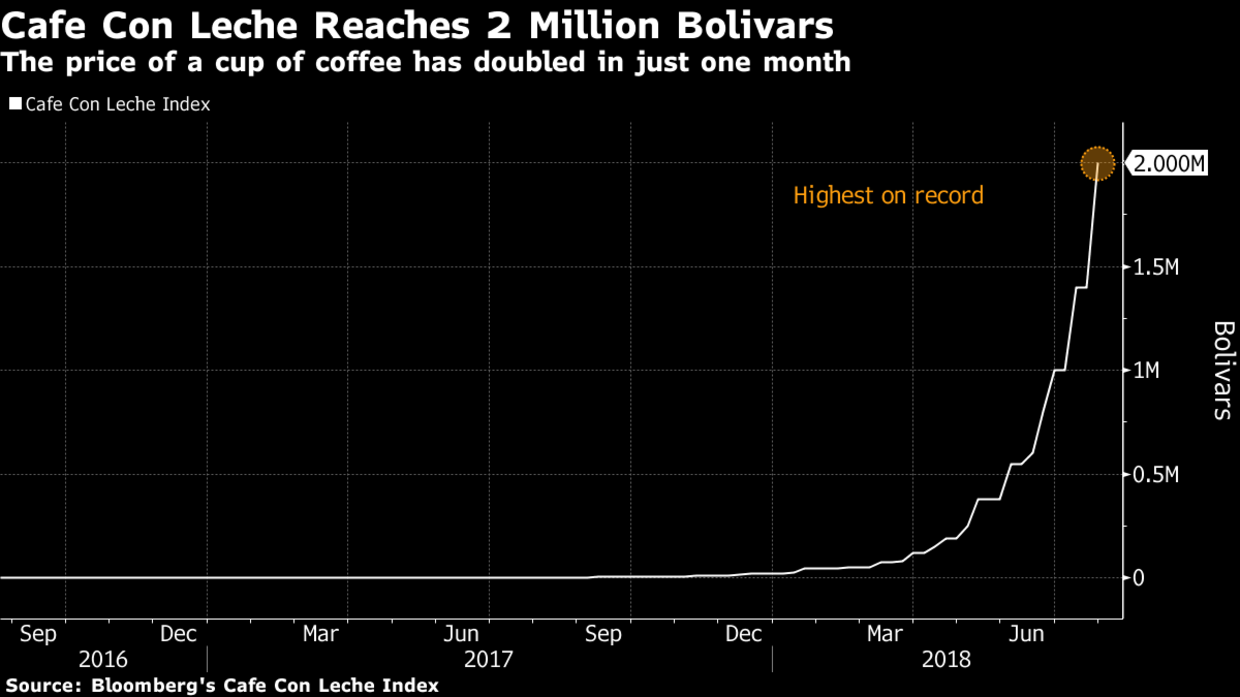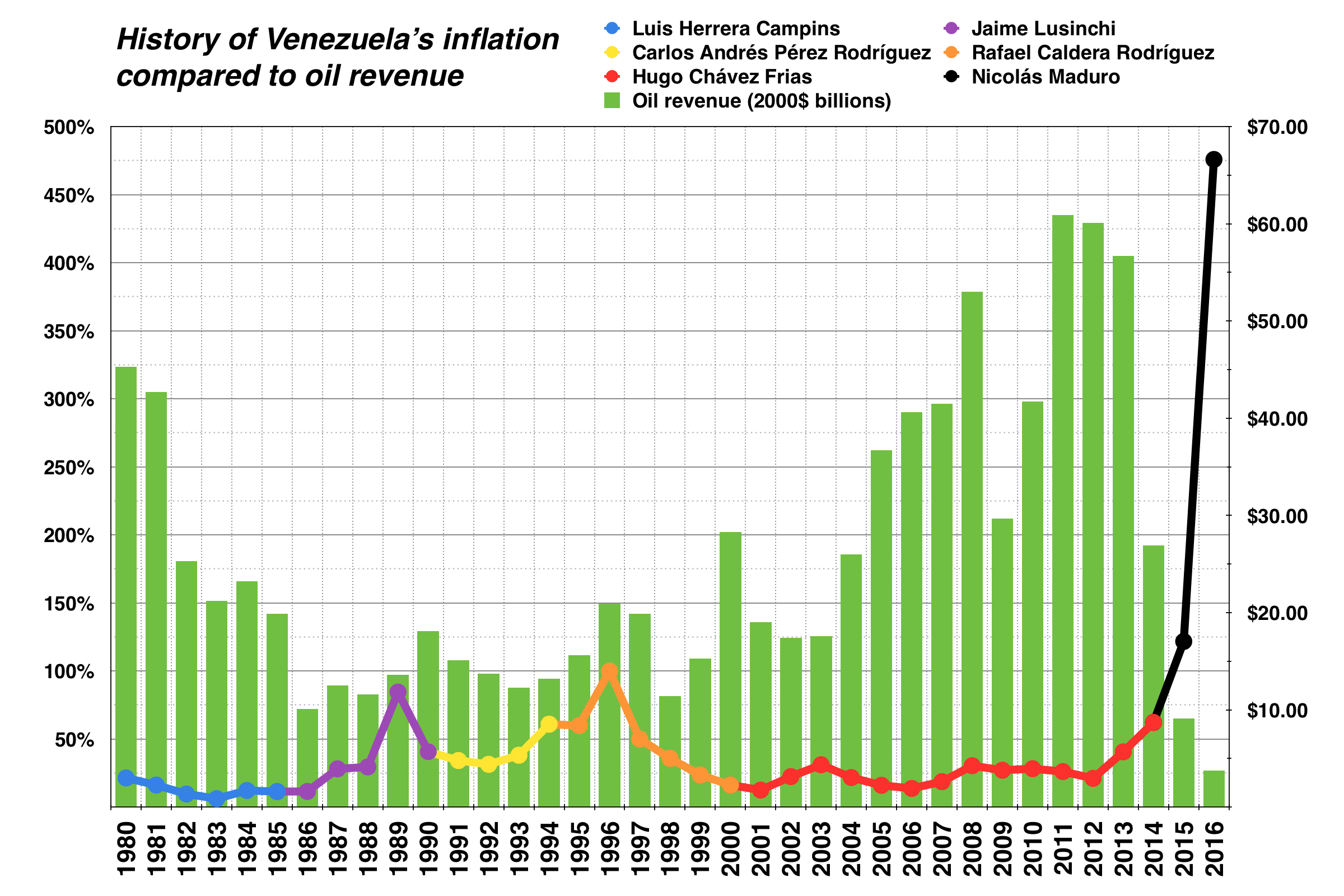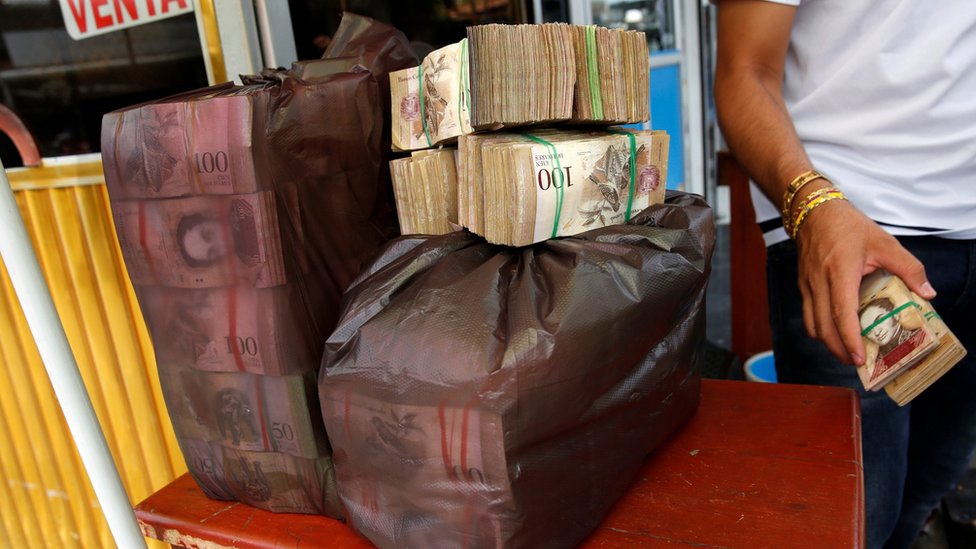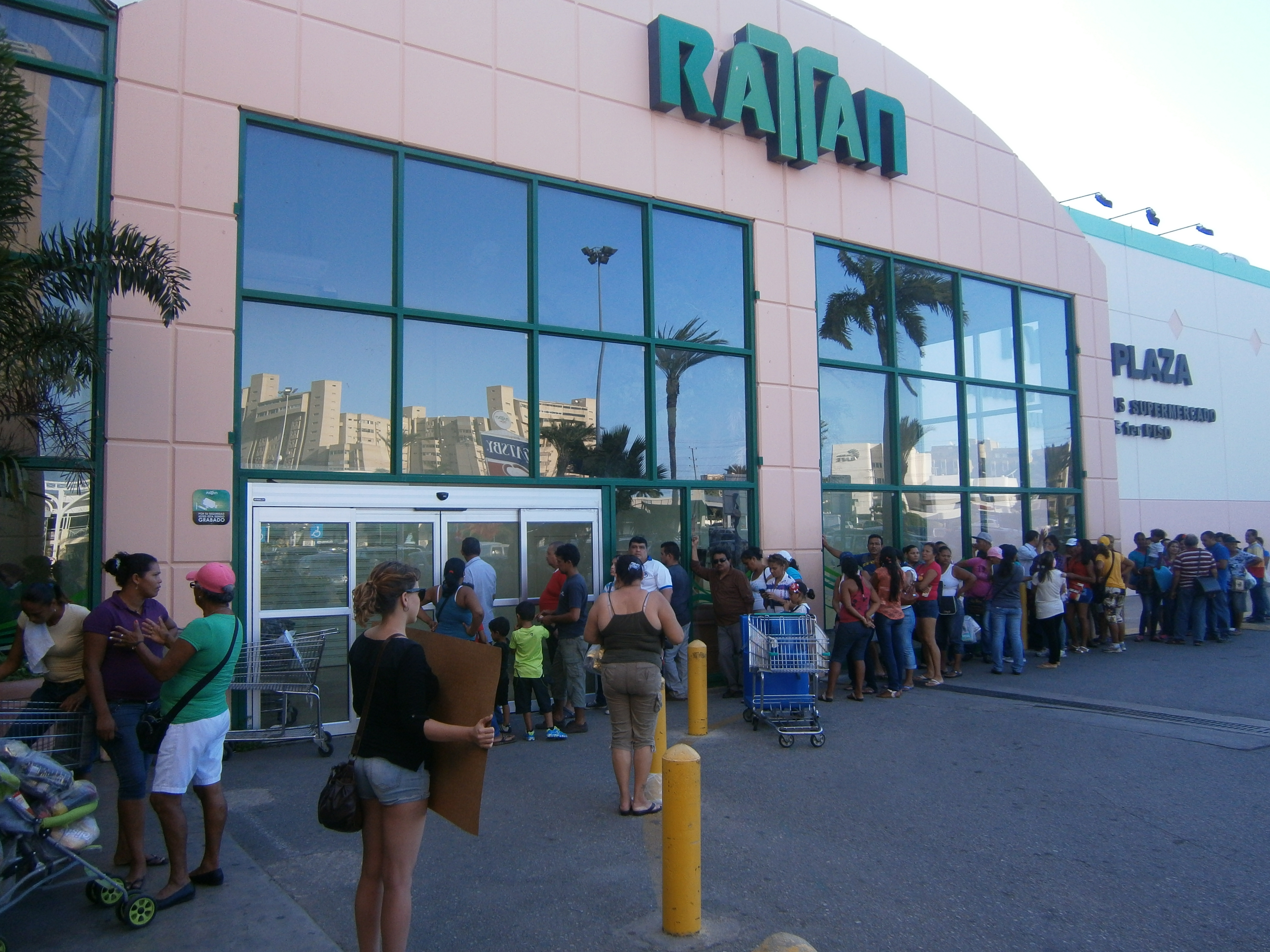
Think the prices at your neighborhood coffee shop are a little steep? Then you might want to avoid visiting the South American country of Venezuela, where the cost of a cup of coffee has risen more than tenfold, from a “reasonable” 190,000 bolivars in April 2018, to over 2 million bolivars in August 2018. What’s worse is that if the July 26, 2018 report from the International Monetary Fund forecasting a 1,000,000 percent annual inflation rate is correct, the caffeine fix could set the country’s residents back an astounding 5 million bolivars per cup by September! Welcome to Venezuela’s hyperinflated economy!
What caused Venezuela’s hyperinflation?
The genesis of Venezuela’s economic crisis can be traced to its abundant oil reserves, the largest in the world. As oil prices soared, Venezuelans stopped producing most goods and instead chose to import everything they needed from overseas. The strategy worked until 2014, when oil prices plummeted, leaving the country with a shortage of foreign currency to pay for basic necessities. This resulted in a scarcity of imported products and with no domestic replacements available, businesses began to increase prices.

Without the oil revenues, the government was unable to repay loans obtained from other nations, severely reducing the country’s ability to garner additional credit. To make matters worse, in May 2018, to try to prevent President Nicolás Maduro from selling off government debt to enrich himself, US President Trump banned American companies or citizens from lending the country any money. As a result, foreign direct investments from the US declined has declined a high of $600 billion annually in 2011 to zero today.
Instead of trying to resolve the issue by encouraging domestic goods manufacturing, the government continued to buy foreign goods, albeit at a reduced level. Also, in an attempt to enable the residents to be able to afford the higher prices, the officials regularly raised the minimum wages. Both initiatives were funded by printing more currency. As citizens armed with more money chased the dwindling supplies, the prices rose even higher, leading to hyperinflation.
Will the recent currency devaluation help?

On August 20, 2018, Venezuela’s President announced the introduction of a new currency to replace the existing strong bolivar. Dubbed the sovereign bolivar, the redenomination lopped off five zeros from the previous currency, effectively reducing its value by 95 percent. This means that 100,000 strong bolivars are now worth just one sovereign bolivar. In terms of US dollars, $1, which was formerly worth 6 million strong bolivars, is now worth 60 sovereign bolivars. To compensate residents for the loss of net worth, the government also announced a 3000 percent minimum wage hike from its previous levels, starting 1 September.
“A historic economic change has begun! We welcomed the sovereign bolivar with the successful adaptation of the entire national banking platform,” said President Maduro. “We will achieve stability with economic and macroeconomic balances for the good of all and all Venezuelans.”

Though the devaluation means that residents will, for now, not have to carry a backpack of cash to buy groceries, it is expected to do little to slow down the hyperinflation. That’s because the economic justification to devalue currency is to make domestic goods cheaper and foreign products more expensive. This, theoretically, increases the demand for domestic goods, both overseas and at home, bringing in much needed revenues, helping the local economy to rebound. Unfortunately, in Venezuela’s case, the price of its primary export, oil, is determined by world markets in dollars, not bolivars. Hence, devaluation of the currency will not cause the Venezuelan crude to become cheaper and more attractive.
What is the only way to revive Venezuela’s economy?

Experts say the country’s economic woes can only be solved with better monetary policies. A good start would be for the government to cut all excessive expenses and stop paying for goods and services by printing additional currency. Providing residents with incentives to start domestic industries would also help. Hopefully, President Maduro and his government will take action and impose sensible fiscal measures to revive Venezuela’s ailing economy before things get even worse.
Resources: Forbes.com, theconversation.com, wikipedia.org, CNN.com
